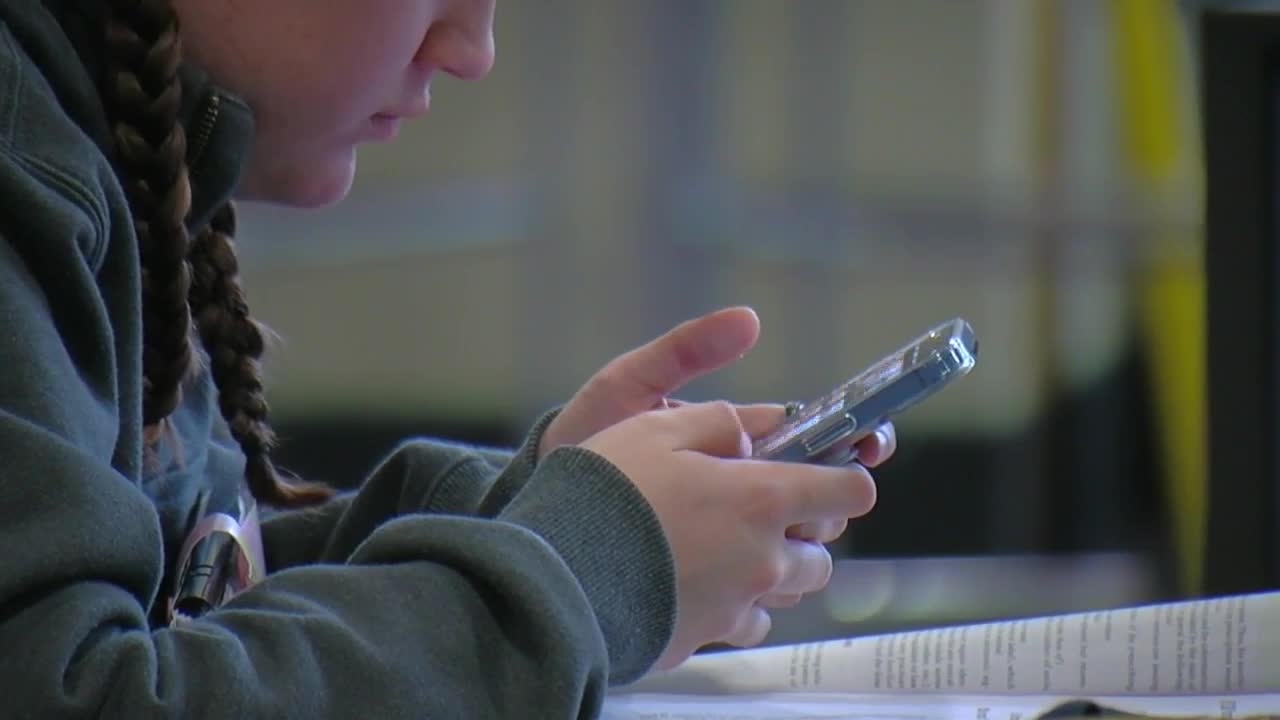BUFFALO, NY (WKBW) — As News Literacy Week continues, it is our effort at 7 News along with our parent company Scripps, to highlight the important role the media play in our community.

Thursday 7 News Senior Reporter Eileen Buckley visited the Medaille University campus to talk with students and a professor about the meaning of news literacy and a new layer of artificial intelligence.
“I think there is so much information constantly coming at you, especially like TikTok — TikTok — you could be following a thousand different storylines in like a matter of an hour,” replied Lauren Carducci.

Carducci graduated from Medaille last year, but she was back for a campus visit Wednesday She runs her own clothing design company and is a podcaster and tells me when it comes to news literacy, she makes sure not to share misinformation.

“Okay, what is valuable to me? What is true? What is not? What is something that could be biased or just processing what is valuable to you,” explained Carducci.
“Every generation now that comes up — they have grown up with the internet, so when you grow up with something it's easy not take a close look at it,” Valeria Bello remarked
Valerie Bello, visiting assistant professor of communications at Medaille, is also a former radio broadcaster. She met with us at the campus radio station.

Bello says media literacy has a higher priority as algorithms take over our news feeds.
“They're in the job of getting you to stay on your phone longer. They want you to engage with content longer because that's how tech makes money,” Bello explained. “They gave more points essentially to articles and posts that go the angry reaction emoji than got any other one, so these articles that cause — outrage — angry — that type of polarizing content gets high engagement because people like to argue.”
This generation of college students tells me they're really on the front lines of artificial intelligence and how it affects they're learning.

“Artificial intelligence is something that's been a lot more in my life than I'd say in any other generation's life and what I'm really nervous about is just the algorithm in general. I feel that it's designed to keep me on my phone and keep me connected to whatever it wants to profit off of,” Kristyn Clare, student.
Clare is a second-year communication student and tells me artificial intelligence makes her feel more distrustful of the internet.
“I feel like there is a lot of room for lies and false news stories or extensions of the truth,” responded Clare.

“So when there's no human oversight for those things context is lost,” Bello noted. “There are so many moving parts and how tech companies rely so heavily on AI for so much that's in our user experience. like recommending videos to watch next on YouTube TikTok which is essentially just a platform full of recommendations — it's an algorithm that runs the entire thing.”

And here is how Carducci responded when I asked her about artificial intelligence.
“Ohhhh!,” laughed Carducci. “AI is scary, you know, the robots taking over the world. If you can't beat them join them. It does make me excited that ai can take over mundane tasks that humans don't need to work on so that people like myself can be creative. I mean that's really looking on the bright side of things,” replied Carducci.

But Carducci, as a member of Generation Z , offers some very old-time advice — ‘don't believe everything you hear and see' online.
“When I go to the news I want to be able to trust what I'm hearing about and it's a little hard in this day and age because you can just fabricate almost any story,” Clare reflected.





